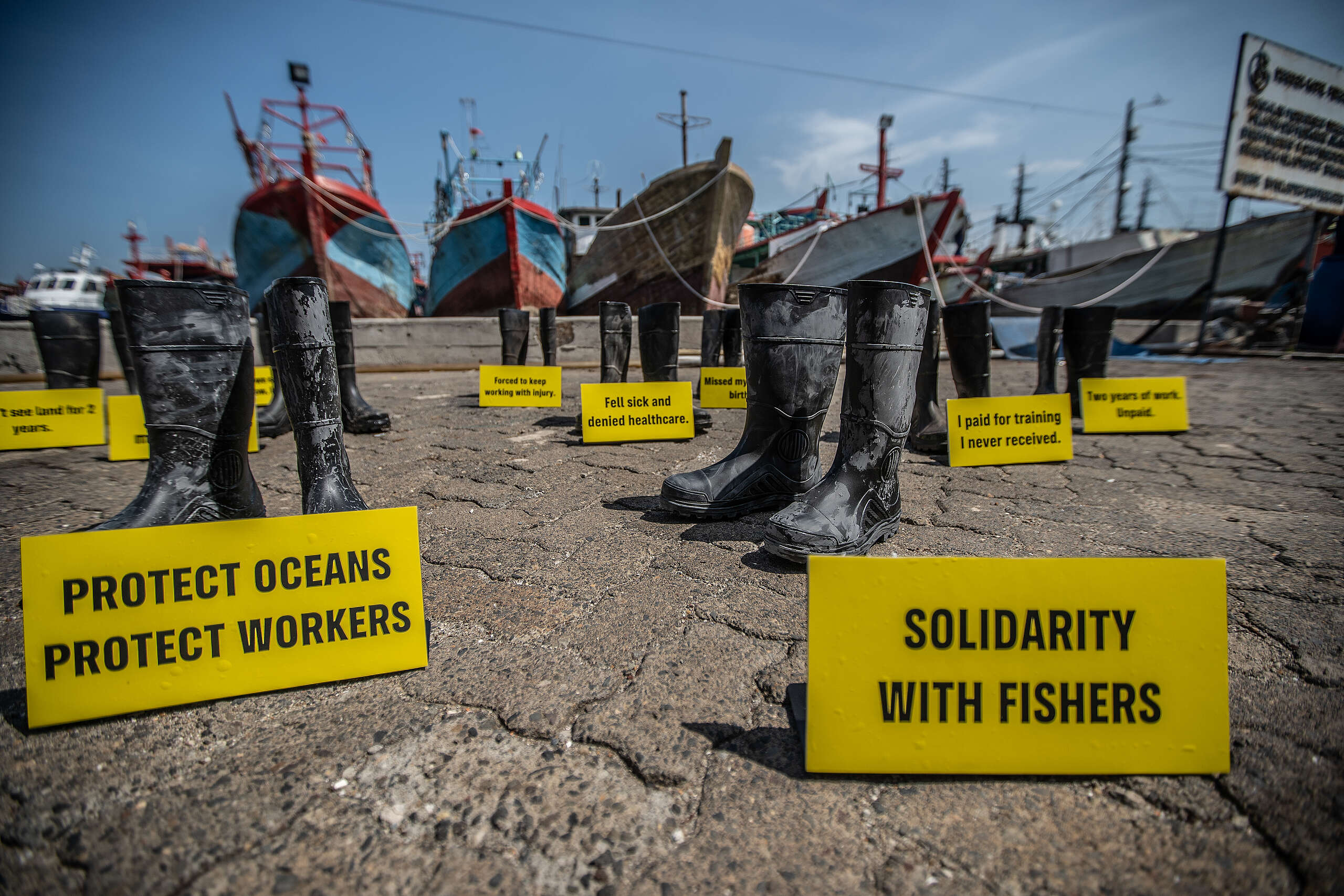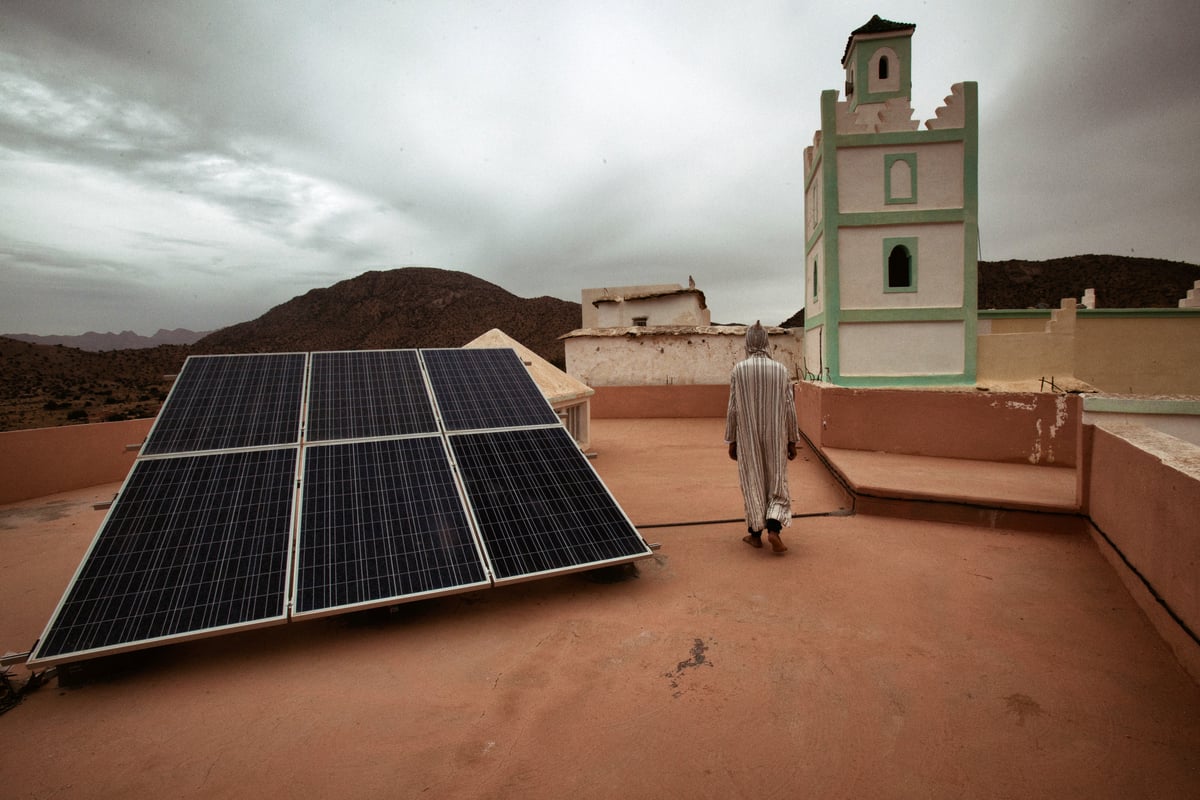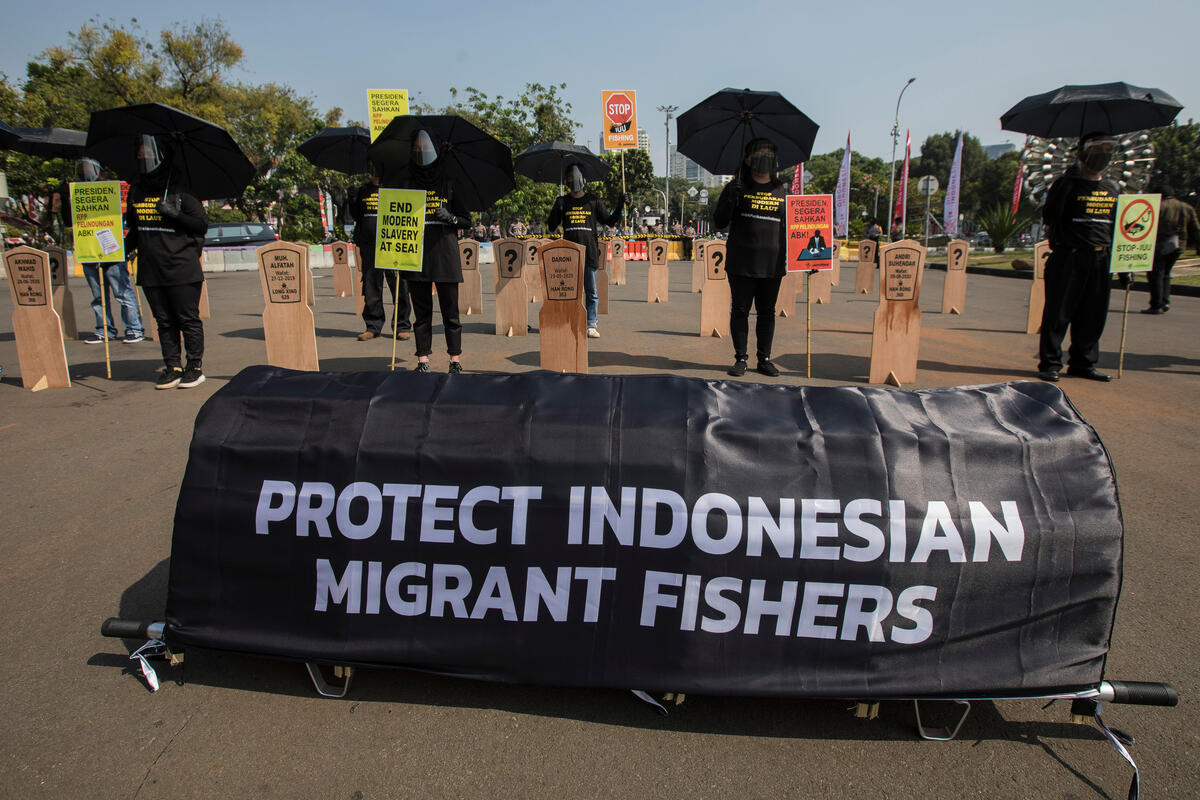When Jimi got a job working on a fishing vessel, he hoped that his fate would change and he’d receive a better deal than working on land. They promised him a good salary, days off, a bonus, and that the ship would dock every six months. On board, they treated him nicely to begin with, giving him food “like normal human beings, because they are humans too,” says Jimi.
But after a few days at sea and working on the boat he hadn’t made any calls. With a family back home, including a third child who was just born, he left responsibilities to his wife, Esti, who was also supposed to be receiving his salary.
“I didn’t get any news, didn’t receive any money. I was clueless,” says Esti. “I was alone taking care of three children, you know.”
And all of the promises Jimi was given?
“It turns out we got none of that. Zero,” says Jimi. “We worked all the time, no matter if we were sick or healthy. When there is work to do we keep on working.”
This is what life at sea as an Indonesian migrant fisher was like, according to Jimi.
His story is just one of many told in the documentary film, “Before You Eat“. Directed by Kasan Kurdi, from Yogyakarta, Indonesia, and produced by the Indonesian Migrant Workers Union (SBMI) and supported by Greenpeace Indonesia, the film details the experiences of Indonesian migrant fishers who report having been tricked into working on vessels that supply seafood to many consumer brands around the world.
We had a chat with Kasan to talk about this documentary, his wish to bring about change, and what we can learn about the journey between sea and plate.
There are many shocking scenes in the “Before You Eat” documentary, such as shark fins being cut off and bycatch being caught up in nets. But you chose this shot as the most powerful one. Tell us about this scene.
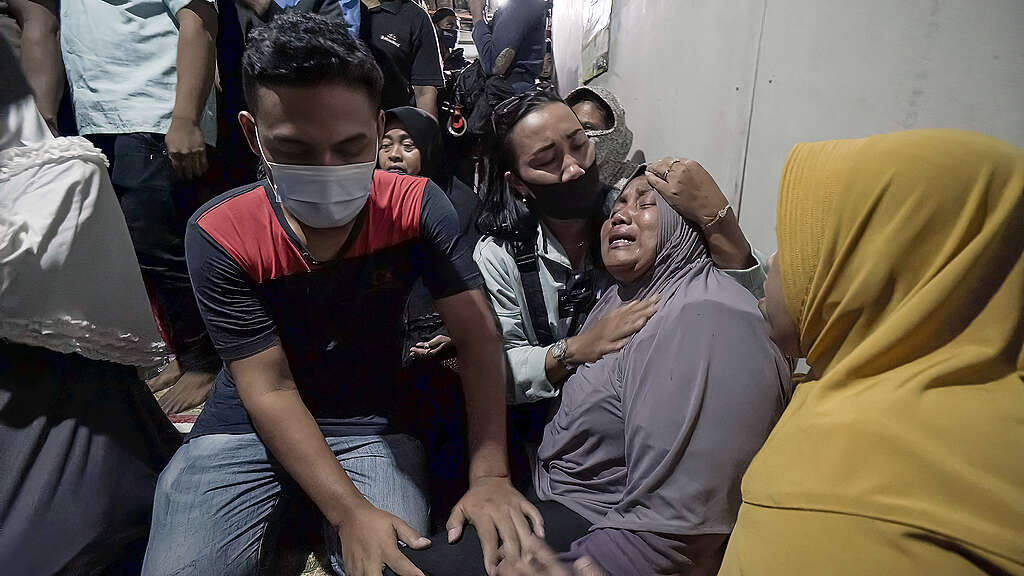
Throughout the shooting process, I met more than 20 ex-migrant fishers and their families. Each of them had different stories, but all of them shared one message: the loss. For those who survive, they have lost a precious part of their lives – they spent months or years working far away from their families and, in many cases, they report returning home without receiving any money. As for the families whose husband or son died while working at sea, they have lost their loved ones.
In this image, we were at Wendi’s house in Tegal (Central Java, Indonesia). Wendi is one of the migrant fishers in the documentary who died while working on a foreign fishing vessel, and that woman is his mother. This was when Wendi’s body arrived, right when the coffin entered the door. Wendi’s mother couldn’t stand it.
To me, this is the most heartbreaking moment. This scene depicts our worst fears about modern slavery at sea, and the complexity of Indonesian migrant fishers’ protection. I was speechless.
How did the title “Before You Eat” come up?
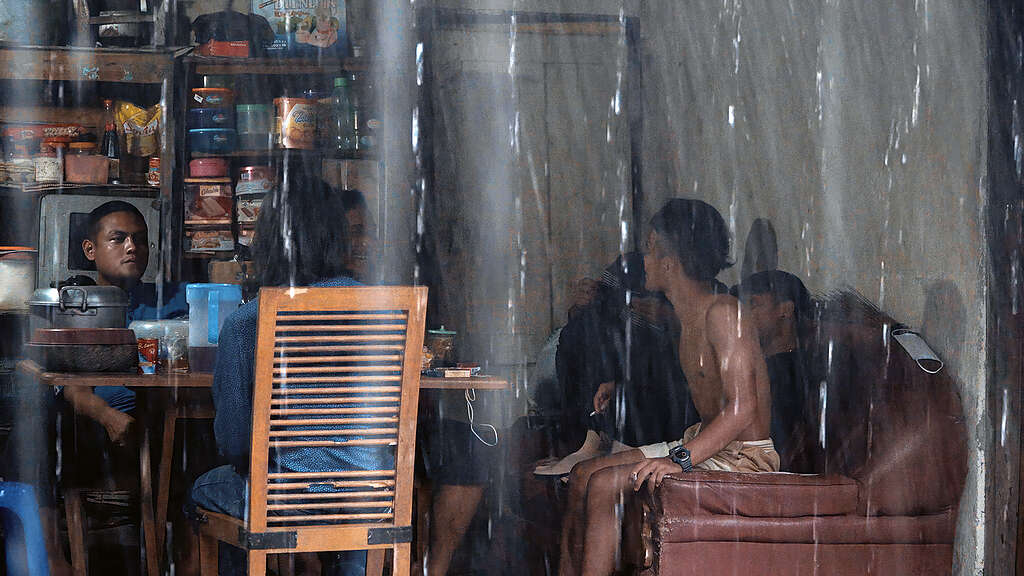
I remember, one day, my team and I had a discussion about what the title of this film should be. Then it occurred to me: what we were trying to show through this documentary is a series of events that take place before we eat or what happens behind the food we eat. Hence, “before you eat”.
That is why I think this [above] image is also powerful. This is the atmosphere in the kitchen and dining room of Ulum’s house during dinner. Ulum is another migrant fisher featured in the documentary. When he and his friends returned to Indonesia, he let them stay at his house while they reported their case to SBMI. They were reporting the abuse they experienced on the ship, their unpaid salary, and many other claims. These and other such cases are mentioned in some of SBMI and Greenpeace Southeast Asia’s report, Forced Labour at Sea: The Case of Indonesian Migrant Fisher.
So, after deciding on “Before You Eat” as the title of this movie, I told my team that this movie is about eating. We shot every time anyone ate. Through the eating scenes, I wanted to emphasize how the eating activity could mean various things.
In this case, these fishers went out to work at the sea to earn money to feed their families. At the same time, what they did was to “feed” people or to meet the needs for seafood all around the world. In that effort, they fell victim to the failing system in the global fishing industry. A system that poorly protected them from the harms and risks of working on the high seas. It’s like that old saying, “To eat or be eaten”. They go out to sea to eat, only to get ‘eaten’ by the unfairness and injustice.
When we talk about fisheries, we can’t separate human protection and marine protection. How does the documentary cover that?
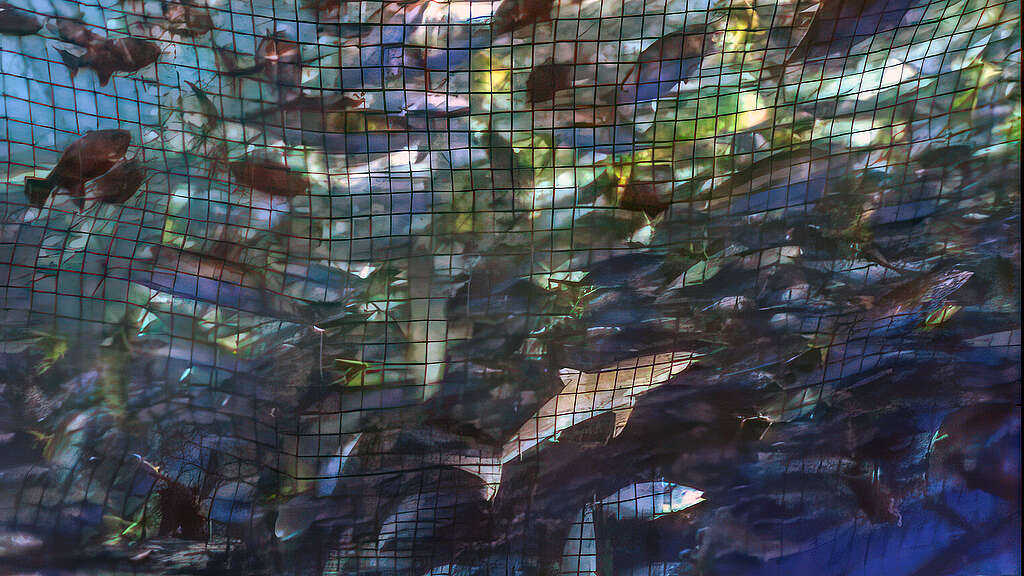
Yes, I agree. Modern slavery at sea and ocean damage caused by the practice of IUU (iIlegal, unreported, and unregulated) fishing are like two sides of a coin. If you look at [the above image] carefully, you’ll notice that there are many kinds of fish trapped there, including sharks and other protected marine creatures.
In one of my interviews with the migrant fishers in the movie, one of them said something about it while he was looking back on his days as a ship crew member. He saw hundreds, or perhaps thousands, of fishing vessels catching fish at the same time in one area. He said that if they [the global fishing industry players] continue to exploit fish that way, soon the fish in the sea would run out. In the sea, whoever is the fastest to catch more fish, wins. This image depicts the greed of those companies. This is crazy!
“Before You Eat” has already been shown to audiences in Taiwan and the United States, and is now being launched globally. Taiwan’s Fisheries Agency has demanded for the film to be pulled from the internet because the footage of Taiwanese fishing boats could “hurt the country’s image.” What do you say to that?
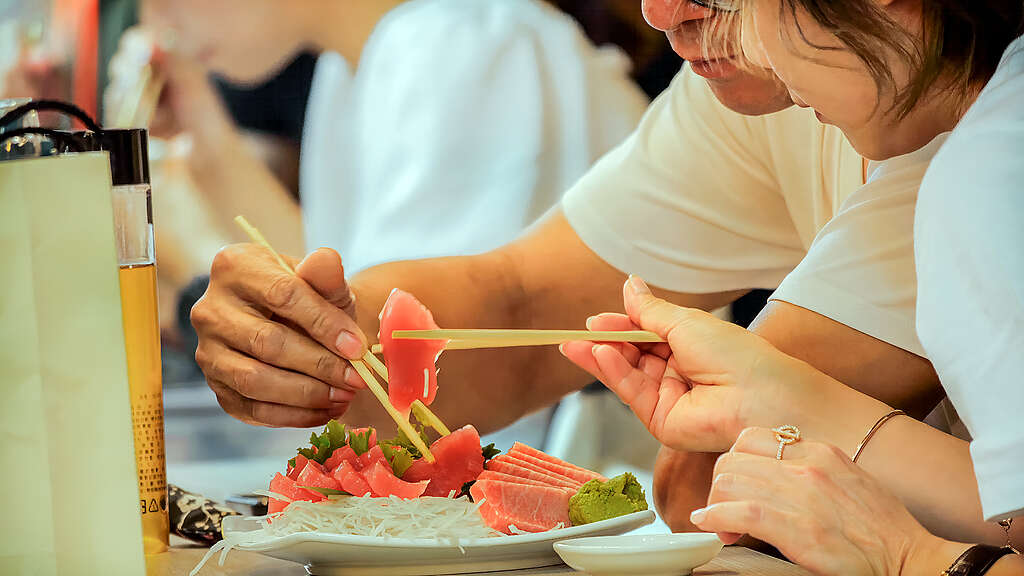
If some people find this documentary disturbing or it makes them feel uncomfortable, it means we are pressing the right buttons. Since we held our first offline screening in Indonesia in 2022 and until now we have launched the director’s cut version globally through its landing page, I’m proud to say that we have received both positive and negative feedback from the audience.
Positive feedback mostly came from the members of the general public who attended the offline screenings and the discussion with the SBMI and Greenpeace Indonesia’s representatives. They said they were touched by the stories of the fishers. They were eager to learn more about the issue and how they can contribute to changes.
Meanwhile, the critics were coming from the industry players. Especially since the movie is available to watch online, some people don’t like the fact that this documentary shows to the world the reality behind the business they are running.
And I’m happy about that! It means the documentary is getting the recognition it deserves. I’m happy that this movie is able to spark curiosity in people’s minds: is our seafood slavery-free?
Before You Eat Director’s Cut is now available to watch online. Visit the Before You Eat landing page to sign up to watch — and add your name to the petition!
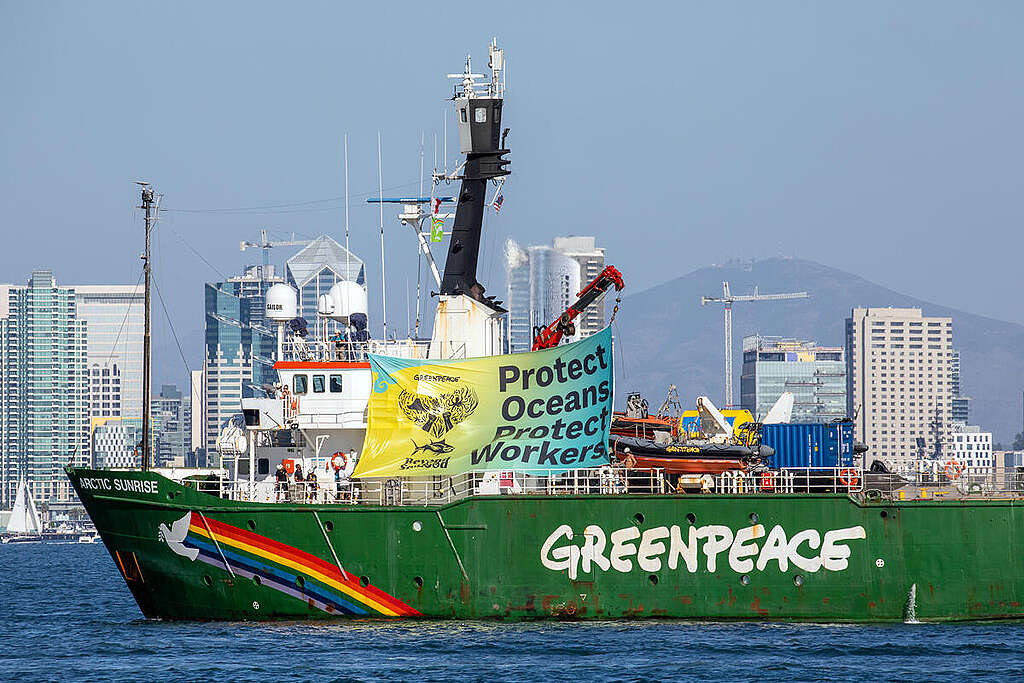
Tell Bumble Bee & FCF to end isolation at sea- it’s time to protect oceans, protect workers.
Sign nowVela Andapita, Global Communications Coordinator and Elizabeth Monaghan, Global Engagement Coordinator, are part of the Beyond Seafood campaign in Greenpeace Southeast Asia.

